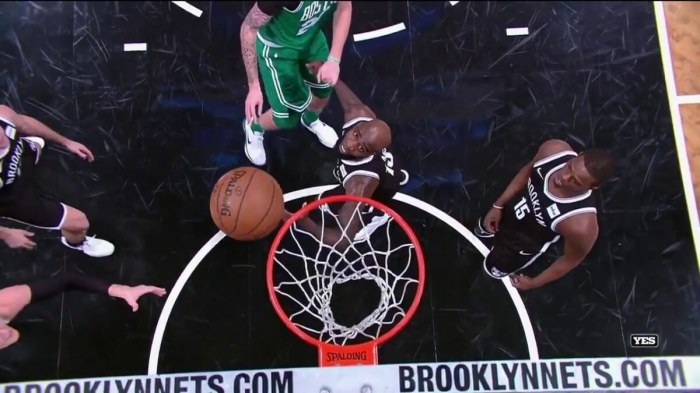Maybe the “I have to give Avery credit” award is more an award geared towards me, the blogger and constant critic, rather than the coach, who’s probably used to being second-guessed. I haven’t been shy in my feelings about Johnson since the early parts of the season. And while I’m still not fully convinced that he should be the guy to lead this organization into Brooklyn, I do think it’s worth celebrating the Little General for one thing that he actually nailed on the head: the mysterious case of Troy Murphy.
On the surface, the Nets’ acquisition of Murphy, a bonafide double-double machine, long-range threat, and New Jersey native to boot, seemed perfect for the organization. In exchange for Courtney Lee, a solid but unspectacular (and unhappy) player who seemed certain to fall on the depth chart behind Anthony Morrow and Terrence Williams, the Nets brought in a player who would stabilize a position that had long needed stabilizing. With a raw rookie in Derrick Favors and career back-up Kris Humphries waiting in the wings, Murphy’s expiring contract was going to look mighty attractive to a contending team near the deadline.
But, as was the case most of this 2010-11 Nets season, things with Murphy didn’t go as expected. He suffered a back injury, and when he returned to action, he looked out-of-shape and unmotivated. After suiting up in a game for the first time on November 3, he proceeded to shoot 29 percent over the next four games. Then he was benched for a game against Cleveland, mustered only 8 minutes the following game against Orlando, and didn’t play another minute that month until November 28.
Interviews with Murphy showed a very visibly aggravated player who didn’t understand why his playing time was non-existent. Johnson was equally unsatisfied, and as trade talks with Denver for Carmelo Anthony intensified, it became clear that Murphy was a goner. By the time January rolled around, Murphy was told by GM Billy King to go home. When Mikhail Prokhorov initially said a deal with ‘Melo was dead, King suggested that Murphy should come back to work, before Avery once again squelched that idea.
With the team playing terribly and no hope on the horizon, I did what any unreasonable Nets fan would do: I jumped on a column penned by Ball Don’t Lie’s Kelly Dwyer, and called out Johnson for jerking around a good guy like Murphy. It didn’t make sense to me that a player who have averaged 14.6 points and 10.2 rebounds just the season before could be so utterly useless, and considering guys who were struggling and had less of a track record like Travis Outlaw and Johan Petro were being thrown out there every night, I thought Murphy’s treatment was just a case of Avery’s egomania running wild.
But after Murphy was mercifully traded to Golden State for a bag of broken basketballs, released and latched on to the Boston Celtics, his season never got any better. He went on to shoot 42 percent in 17 games for Boston, including 10 percent on three-pointers, his supposed specialty. He’s logged a total of 3 minutes in the postseason for the Celtics. Simply put, Murphy is the poster-child for non-factors.
And while Murphy’s downward spiral is still completely perplexing, I now have to hand it to Avery Johnson. He saw something from the get-go that showed a player way in decline, who probably would have been zero help, even on the Nets. Nets fans only would have become frustrated if Johnson continued to trot Murphy out there every night, giving him 25-30 minutes a game while Kris Humphries rotted on the bench. It shows a point that while coach lives to be second-guessed, they do see things behind the scenes that will justify their decisions. Johnson got it right with Murphy, and I acknowledge him as such.
















